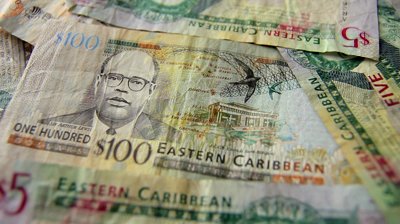St. Vincent and the Grenadines (SVG) owes EC$141 million to Venezuela under PetroCaribe, an oil alliance of some Caribbean and Latin American nations with Venezuela to purchase oil on conditions of preferential payment.
“In the aggregate, it is 141 million dollars, comprising 62 million dollars plus, as indicated in the debt profile to IADC (International Airport Development Company), just over 60 million dollars in the central government, and other monies as I have just indicated when I read out the entire printout, including over eight million dollars in cash balances,” Prime Minister and Minister of Finance Ralph Gonsalves told Parliament.
SVG received its first shipment of petroleum products under PetroCaribe in December 2005, on the eve of the general elections, and has since received diesel and some liquefied petroleum products under the agreement on a regular basis.
Gonsalves, making a ministerial statement, told lawmakers that when the price of oil is between US$15 and US $20 a barrel, countries that have signed on to PetroCaribe must pay within 90 days for 95 per cent of the oil that the receive from Venezuela.
The remaining 5 per cent can be repaid over 25 years at 2 per cent interest.
Conversely, when the price of oil rises to more than US$100 a barrel 50-50, 50 per cent is paid within 90 days and 50 per cent over 25 years.
Gonsalves said that during the first three years of the agreement, the state-owned electricity company in SVG, VINLEC, was not invoiced for the fuel it received under PetroCaribe.
The monies were placed in an account and when everything was resolved, all the money for the short-term portion went to PDVSA SVG — one of two state companies established in SVG to facilitate the PetroCaribe agreement, and the other EC$14 million went to the government.
The government has received all invoices from 2009 to August 2014, Gonsalves said, adding that in the earlier years, SVG imported less than 100,000 of oil a year.
In 2013, however, the country imported 171,000 barrels at a cost of EC$50.6 million, Gonsalves said.
Of that amount, EC$33.8 million went to the government as a loan.
Up to August 2014, SVG had imported 141,000 barrels this year, at a cost of EC$48.5 million, with EC$26.3 million going to the government as a loan.
Initially, only VINLEC purchased oil under the PetroCaribe agreement, but petroleum dealer, Sol, has come on board.
Gonsalves said PetroCaribe SVG has told him that VINLEC buys 10,000 plus barrel a month, and Sol 6,000 barrels.
He said that contrary to what has happened in some other countries participating in the PetroCaribe initiative, SVG has paid fully all the short-term debt.
Between 2010 to August 2014, EC$95.1 million has been paid on the short-term portion, while EC$5.97 million, including principal and interest has been paid on the long-term debt, EC$760,000 of which was for interest, Gonsalves told lawmakers.
“I must say that there has been a continued discussion about the financed portion with VINLEC which has come over, and we are sorting that out with PDVSA. There are some bureaucratic rules, but it is money which has come to us, come to the government.”
He told lawmakers that SVG is
“absolutely not” in default, and listed 31 projects and programmes in SVG that have been financed using the PetroCaribe loan.
Gonsalves’ ministerial statement came ahead of a question by Leader of the Opposition Arnhim Eustace about SVG debt under PetroCaribe as at June 30th; where it is recorded in terms as on the National Debt given its not recorded in the Estimates for 2014; and the amount repaid in interest and principal under the loan facility and where it is recorded in the National Debt Records.
Gonsalves told lawmakers that all but one of the Organisation of Organisation of Eastern Caribbean States (OECS) countries said they do not put the PetroCaribe debt in the debt profile.
He said one of the OECS capitals has told him that it is yet to determine how the PetroCaribe debt will be handled.
Without PetroCaribe monies, SVG would have been able to house persons displaced by the extreme weather last Christmas, would not have been able to give farmers EC$6 million in loans at 2 per cent interest, and would not have been able to finance the Support for Education and Training (SET) programme, a paid internship for community college and university graduates.
Gonsalves said his government will continue to be responsible with the resources from PetroCaribe, will honour the agreement signed in 2005, and will function with the local companies under the initiative in the manner in which they were set up.







have someone handling your money but cannot give you a straight succinct statement of your account then you must know something is wrong. Very wrong. If that is one of your employees you send them on vacation and bring in a forensic accountant.
Otherwise you might be screwed.
Gonsalves, making a ministerial statement…So right away you know what he saying is a lie.
If Mr. Eustace, didn’t uncover this mess, it would have been business usual for this government.
Why would a government cover up a 141 million dollar debt, if it is been used for public good?
May be there is a mistake and it’s actually 1.4 billion.
Camilo we shouldn’t jump to conclusions, but your probably spot on right.
Doc, if Gonsalves is found have lied on this matter can anything be done to him in the future?
No not physically , legally.
Can he be prosecuted for anything like lying about such a matter?